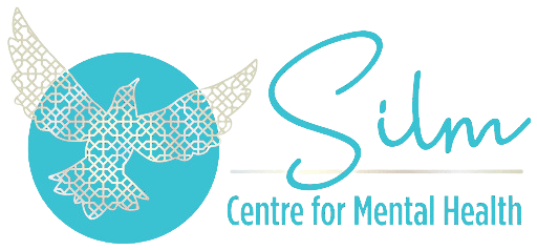
YASENE MAWJI
Yasene Mawji holds a Master of Social Work from Carleton University. Since 2014 she has provided counselling, advocacy and case management services to individuals and families affected by domestic violence, chronic illnesses, anxiety, depression, and substance use issues. Yasene firmly believes in maintaining the dignity of each one of her clients. She treats each individual, regardless of their background or situation, with care and compassion. She draws from multiple therapeutic modalities, such as Cognitive Behavioural Therapy, Mindfulness and Trauma-Informed Therapy, to help clients tap into their inner resources and strengths. Ultimately, Yasene would like to see her clients lead healthy and happy lives spiritually, mentally, physically and emotionally.
Hi, my name is Yasene Mawji, I’m a social worker and psychotherapist at Silm Centre for Mental Health. I’ve worked there now providing one on one therapy to young adults and adults for about a year now. I’m really enjoying my time there.
1. What made you decide to become a therapist?
So, I think that my main impetus for becoming a therapist is that I saw a gap in the field, in that I noticed that there are many folks who are from South Asian communities, from Muslim communities and other folks of colour who are trying to access support from people who look like them, from people who sound like them, and from people who kind of get what it means to come from these communities. I think there’s been a lot of work done in terms of destigmatizing accessing therapy for a lot of folks of colour and they’re now ready to find that support and it’s challenging for some folks to find those people. So, I saw this gap, I have also experienced this gap when I’ve tried to look for help in the past and I’m really trying to fill that space and to offer that space to folks who look like me, sound like me, who come from immigrant parents, who are from the South Asian community…so I think that’s a big reason why I decided to get into this field.
2. What are you passionate about?
I think that my number one passion is people’s stories. My first degree, even before I went into social work, was English literature. I went into that field because I have a huge passion for learning people’s stories, hearing people’s stories and I think that really translated into the therapy space because I’m always wanting to and trying to see things from someone else’s point of view. I feel so honoured every time a client invites me in and shares their stories with me. It’s definitely not something that I take for granted, because I know how hard it can be to share your story with other people. But for me, I’m really passionate about learning what life is like for this person. What are the things that they’ve gone through, that they’ve experienced? How can I learn from this person? How can I take what I’ve learned from this person and apply it in the therapy space to help work on the things that they’re trying to work on? So, that’s something I’m definitely really, really passionate about. Something else I would say that I’m really passionate about is the connection between body and mind. There are a lot of clinicians in the field who I’m trying to learn as much as I can from, and those folks are Gabor Maté and Bessel van der Kolk. They spend a lot of time talking about how the mind is so powerful that it can sometimes work against us by hiding things that are too painful or too overwhelming for us to consciously deal with, but that requires our attention. They also explain that the body is not quite as cunning as the mind can be, and so, when we learn to be able to or relearn to be able to tap into the sensations that our bodies have, we can, kind of, begin to uncover what it is that might be going on with us that we might be knowingly or unknowingly hiding from ourselves because it is too painful or too overwhelming. So that’s something else that I’m really passionate about and really believe in—that body and mind connection.
3. What are your strengths as a therapist?
I think that, in terms of my strengths, some of the feedback that I’ve received from clients are that they feel like I’m extremely non-judgmental and really easy to talk to—which I’m really glad to hear that I cultivated that space for folks. You know, I think building that rapport and trust with your therapist is so important when working on some of these really difficult things, and so I do try really hard to create that space where people feel like they can come and tell me whatever it is that they want to tell me and know that I’m not going to judge them for that. Some of the other strengths that I think I have are that I’m always trying to better myself as a clinician. By that, I mean I’m always trying to learn about new modalities, new techniques that are evidence-based and that have proven to help people. I love learning, and so I think that’s also what makes me a strong therapist—that I’m open to learning new techniques, I’m wanting to learn new techniques and I’m also really open to feedback from clients. If people tell me, this is the type of way that I want to be supported, and this is the kind of care that I’m looking for, I’m really open to molding the way that I provide services to those folks, because ultimately it is them that they’re coming to me for that support. I think it’s important that I provide that support that they’re looking for and not what my version of that support is. I think that also ties back into people’s stories, learning what it is that they’re looking for and what has led them to the therapy space.
4. How would you describe a session with you? What approaches do you use?
A session with me would typically include a combination of talk therapy and then building strategies and tools—which I find a lot of people access the therapy space for. So, it would be a combination of both of those things. The modalities that I use with clients largely depends on what their goals are, but I do often draw from modalities such as: acceptance and commitment therapy, mindfulness, or dialectical behavioral therapy. These are some therapies that I have found to be really beneficial, that are evidence-based, that have been proven to help people and come with a lot of concrete strategies that folks can apply to their daily lives.
5. What tips do you have for someone who is seeing a therapist for the first time?
I would say that it’s okay to feel nervous. A lot of people will come in and say, “I don’t know what to expect, this is my first time.” I’m sure they have so many different concerns around, “Will I be heard? Will I be validated? Is what I’m going through normal?” so many things like that. So, what I would say to folks is it’s okay to be to be nervous. Likely what will happen is, as you continue to work on building that rapport and trust with your therapist, you will start to feel less nervous over time. Another tip I would have for people who are starting therapy is that you will likely get homework from your therapist to do in between sessions, because therapy is an active process. I would say, be prepared to be doing some of that work in between sessions in order to help meet and reach your goals. The last piece of advice or tip that I would give to folks who are accessing therapy is similar to what I said earlier—to just be really honest with your therapist about what your needs are and what kind of support you’re looking for, because the therapist is there for you, they’re not there for themselves. It can be so helpful and rewarding when you’re getting the type of support that you’re looking for. I would say, just tell your therapist what works for you, what doesn’t work for you, what you’re looking for, and I think that can be beneficial for both parties.
6. What is your ultimate goal when working with your clients?
I would say my ultimate goal largely depends on what the goals of my clients are. But I would say that across the board some of the goals that I have for my clients are that I want them to feel heard, I want them to feel validated, I want them to feel less alone, and I want them to feel empowered and more confident in themselves.
7. What is your favourite thing to do in your free time?
Some of my favorite things to do in my free time are spending time with my niece and nephew, who are two and three years old and are so fun and funny to be around. I would say other things I like to do in my free time are play sports and be active. I really love playing basketball and tennis baseball and I love swimming. I really enjoy movement and being active; that makes me really happy.
8. What is something you do for your own wellness?
Getting enough sleep because sleep is really, really important, especially to me. I also make sure that I spend time around animals because I find that to be really healing. I have a cat named Edgar, so I spend lots of time with him and I also love to spend time around horses. The last thing I do for my wellness is I’m a really big fan of the app called Calm. It’s kind of like a meditation app and one of the features of that app are sleep stories. So, I like to play sleep stories sometimes before bed because it really helps get me out of that cycle of thinking that you can sometimes get caught up in when you’re trying to rest. So, I find that to be helpful too.
9. Anything else you would like to add?
If you’re interested to learn more about my approach, my style, my areas of expertise, I would say, please check out my Psychology Today profile because there’s a bit more information in there. All you would have to do is search Yasene Mawji and then I would show up there.
10. Are you currently accepting clients? How does someone get in contact with you to book a consultation?
I have the capacity right now to take on a few more clients. If people are interested in booking a free consultation with me, which is usually about 20 minutes in length, I would say, please send me an email. My email address is yasene@silmmentalhealth.com. Please feel free to reach out, send me an email, we can book a time to chat over the phone or by video so I can learn a bit more about what kind of support you’re looking for.

